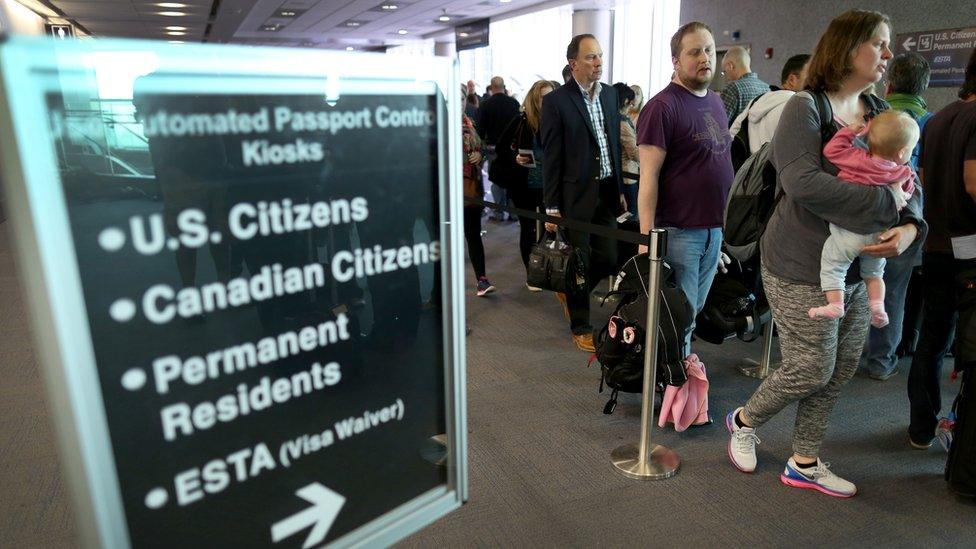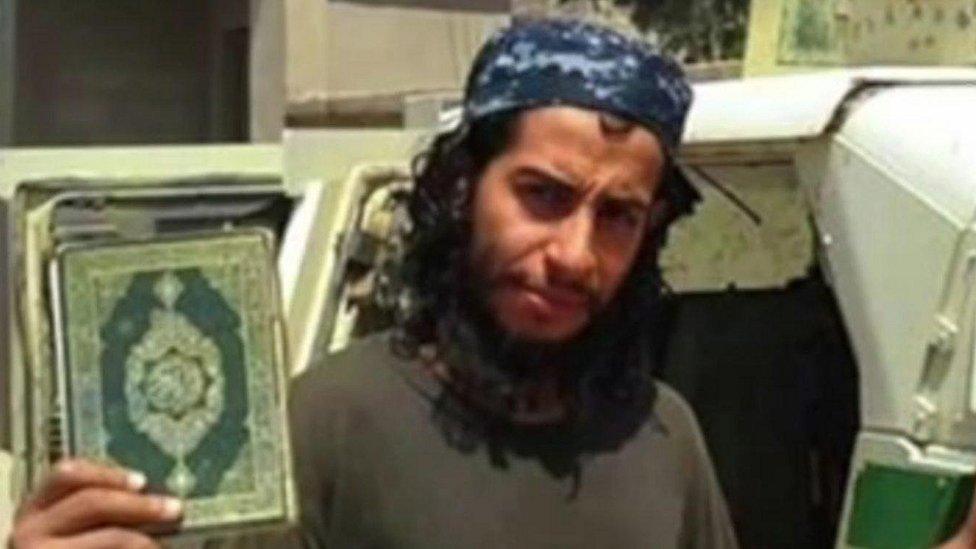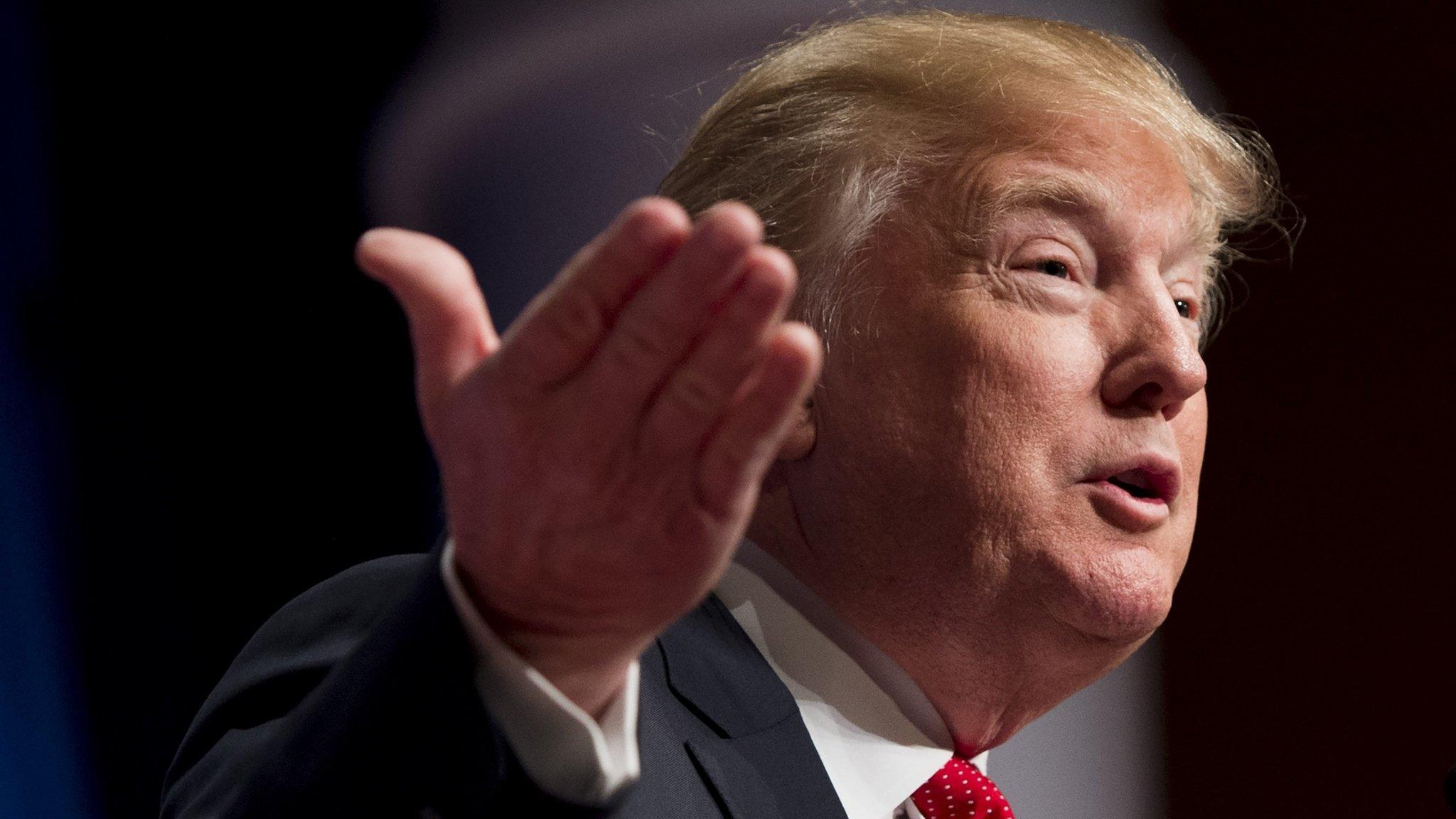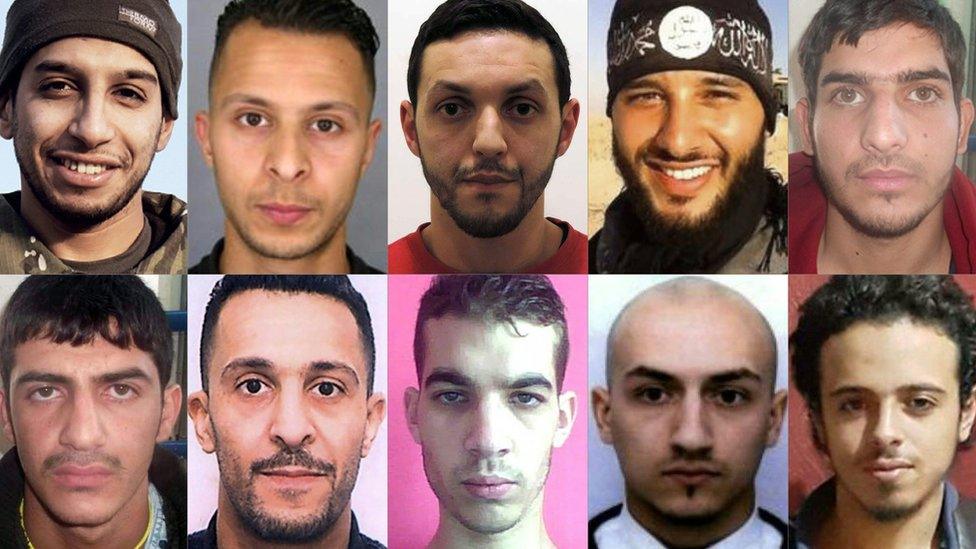US House votes to restrict visa-free travel after Paris attacks
- Published

US officials fear European extremists could try to enter the country to launch an attack
The House of Representatives has voted to tighten visa-free travel to the US following the Paris attacks.
The measures would bar people who travelled to Iraq and Syria after March 2011 from the visa waiver programme.
People who have visited Iran and Sudan - which the US accuses of supporting terrorism - would also need a visa.
The White House-backed bill was proposed because the Paris attackers could have travelled to the US without a visa.
Republican presidential candidate Donald Trump has called for far greater restrictions, proposing that all Muslims be barred from entering the US until further notice.
But his comments - made after a deadly mass shooting in California by Islamist sympathisers - have been condemned by politicians from across the political spectrum.
'Abundance of caution'
The House voted 407 to 19 in support of the proposed change to visa-free travel.
"In an abundance of caution, we will now require those individuals to apply for a visa and go through the formal visa screening process," said House Republican Candice Miller, the bill's main sponsor.
There are 38 nations currently included in the US Visa Waiver Program (VWP).
US officials say about 5,000 Europeans, including many from VWP nations, have travelled to Syria and Iraq to fight with extremist groups such as the so-called Islamic State and pose a risk to the US.
If the bill passes through the Senate and is signed into law, it would also require all travellers arriving in the US under the VWP to have electronic passports containing biometric data from next April.
The bill also calls for countries participating in the VWP to share more information about suspected terrorists and criminals.
- Published19 November 2015

- Published8 December 2015

- Published27 April 2016

- Published8 December 2015